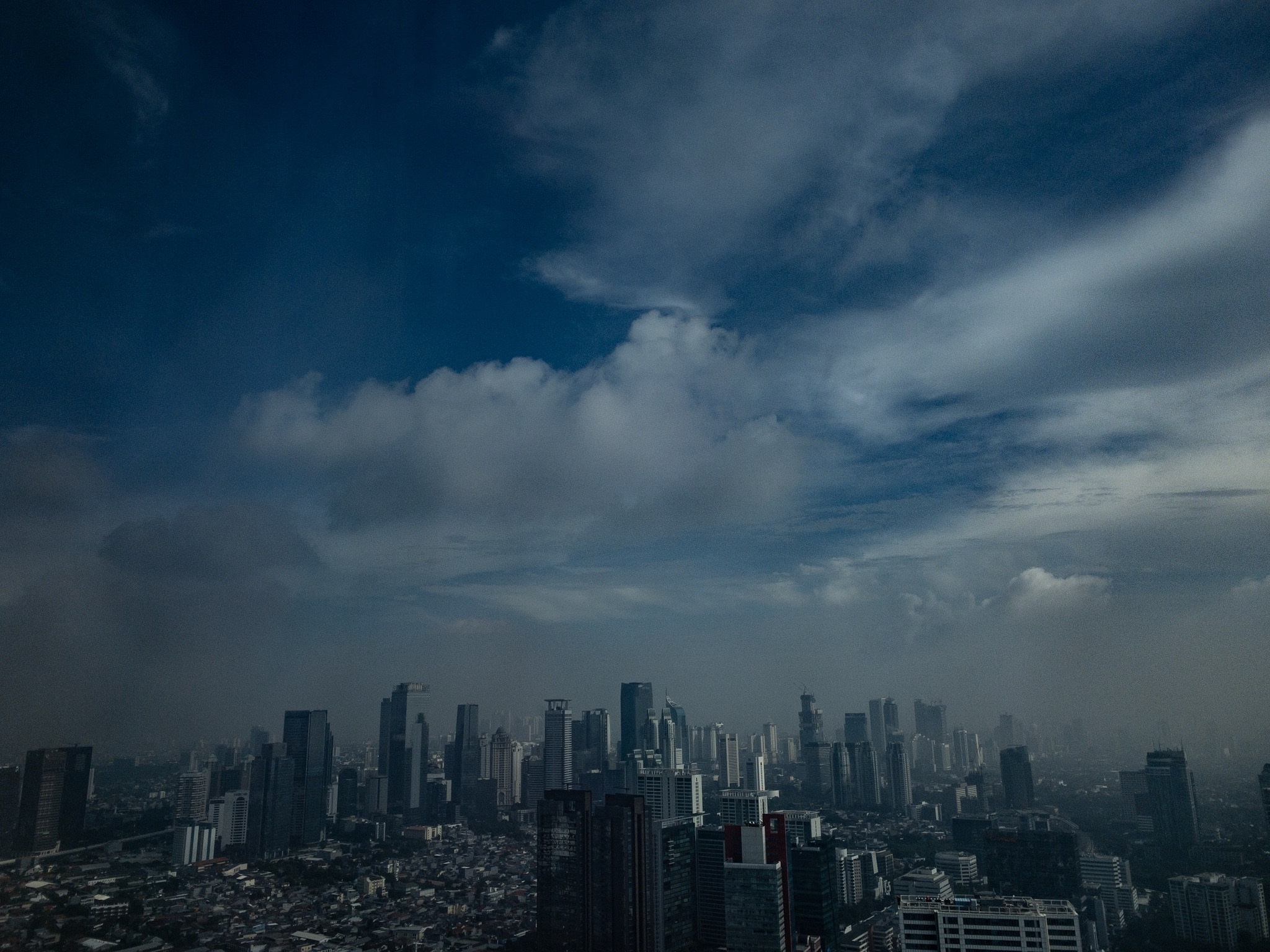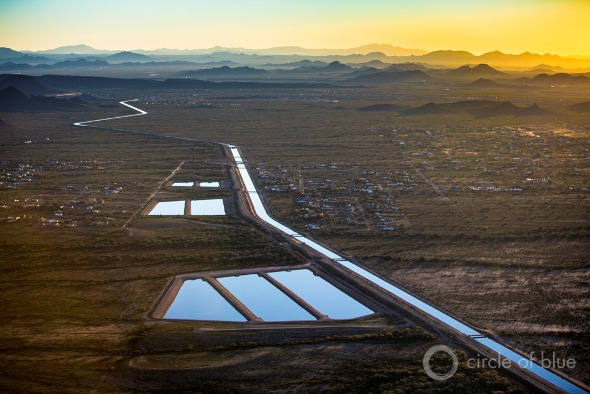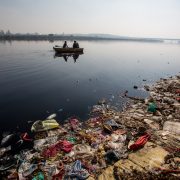Capital Flight? Indonesia Leader Suggests Moving Government Out of Sinking Jakarta
Unsustainable groundwater use is one factor that could prompt a political and urban restructuring.

Jakarta, home to more than 10 million people, is the fastest sinking big city in the world due to subsidence caused by groundwater pumping. Photo © J. Carl Ganter/Circle of Blue
By Brett Walton, Circle of Blue
The front-runner in Indonesia’s presidential election indicated that he supports moving the center of government out of Jakarta to higher, less congested ground.
President Joko Widodo, who is leading the vote count in his reelection campaign, reportedly discussed three relocation ideas on Monday in a closed cabinet meeting, the BBC reports. The options represent increasing levels of logistical and financial complexity. The simplest option would move government offices within the city. A second option would relocate them outside of Jakarta but within the metropolitan area.
Widodo’s preferred option, according to reports, is the most ambitious: build a new capital city away from Java, the country’s most populous island and the center of political power.
There are a number of reasons to justify the move. Traffic in Jakarta, home to more than 10 million people, is unbearable. Relocating the capital can be politically pragmatic when looking to undo the geographical concentration of power. Brazil and Kazakhstan are two countries that moved their capitals inland in the 20th century.
One factor that cannot be ignored is that parts of Jakarta are rapidly sinking, as much as 4 meters (13 feet) since the 1970s. This land subsidence is driven by excessive groundwater pumping that causes soils to compact. Movement of the land can topple buildings, and it has forced residents to abandon homes that tilt dangerously. Subsidence is one reason that Widodo floated the relocation idea.
Unchecked groundwater use is creating a monumental flooding hazard for the city’s low-lying areas, especially along the harbor, where sinking land draws the waters of Jakarta Bay ever closer. City officials are already at work on a massive sea wall across the bay.
The only way to stop the subsidence is to stop pumping groundwater, particularly from deep zones that get little recharge. That recommendation was made years ago in a conference organized by the province of Jakarta, the public works ministry, and Deltares, a Dutch organization that is one of the leaders in subsidence research.
Jakarta is not the only sinking city. Bangkok, Hanoi, Manila, and other Southeast Asian megacities are subsiding because of unsustainable groundwater practices. The Tidewater region of Virginia, home to the world’s largest naval base, also faces greater flood risk because of compacted land.
It’s not a hopeless situation, though. Tokyo had unsettling subsidence levels until the 1960s and 1970s, as did Houston, now the fourth-largest city in America. In both cases, governments curtailed groundwater pumping and turned to rivers and lakes for water, actions that slowed or even stopped the sinking. In Tidewater, a regional water district began injecting treated wastewater into the ground to stabilize the aquifer.
Whether Jakarta’s leadership can muster a response equal to the challenge is yet to be determined.
Brett writes about agriculture, energy, infrastructure, and the politics and economics of water in the United States. He also writes the Federal Water Tap, Circle of Blue’s weekly digest of U.S. government water news. He is the winner of two Society of Environmental Journalists reporting awards, one of the top honors in American environmental journalism: first place for explanatory reporting for a series on septic system pollution in the United States(2016) and third place for beat reporting in a small market (2014). He received the Sierra Club’s Distinguished Service Award in 2018. Brett lives in Seattle, where he hikes the mountains and bakes pies. Contact Brett Walton













Leave a Reply
Want to join the discussion?Feel free to contribute!